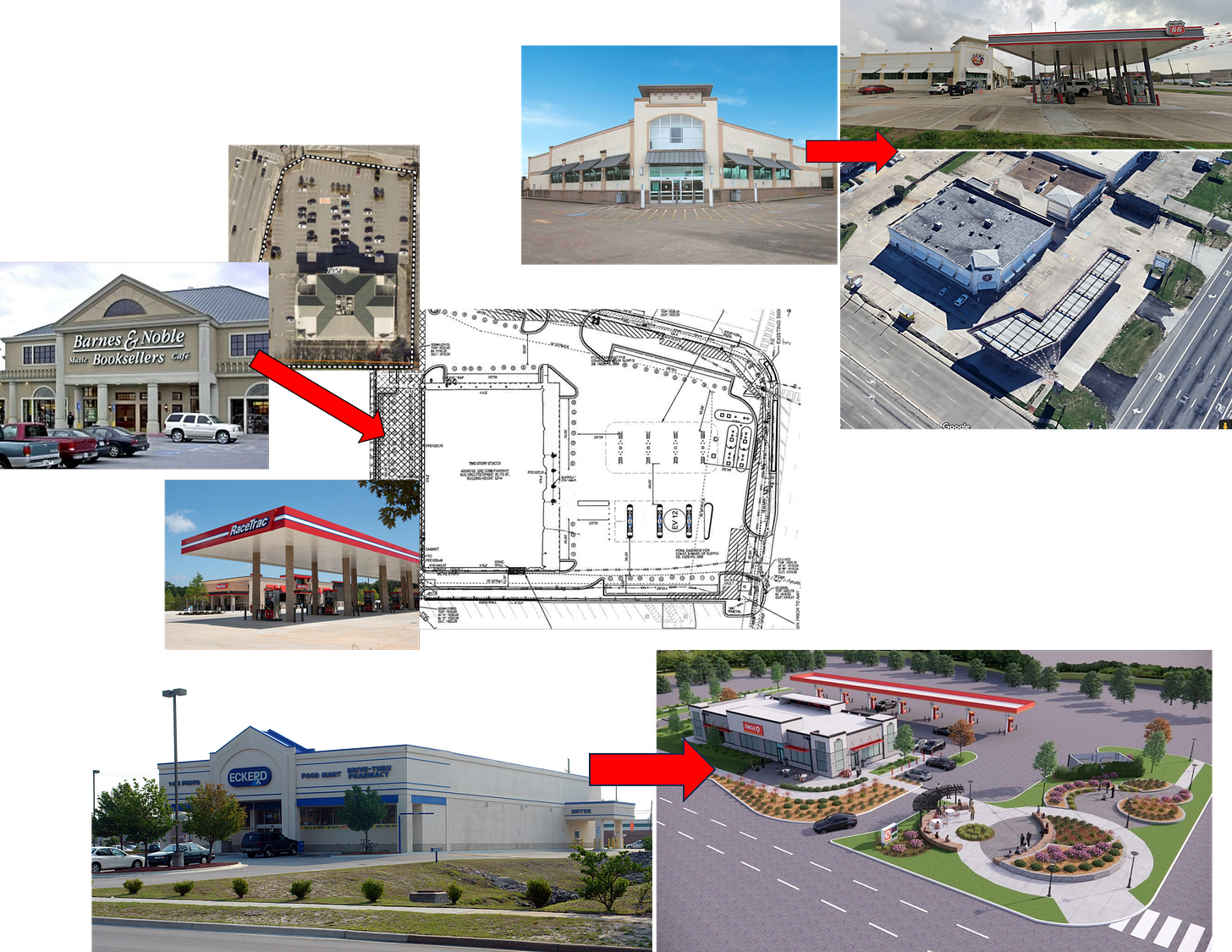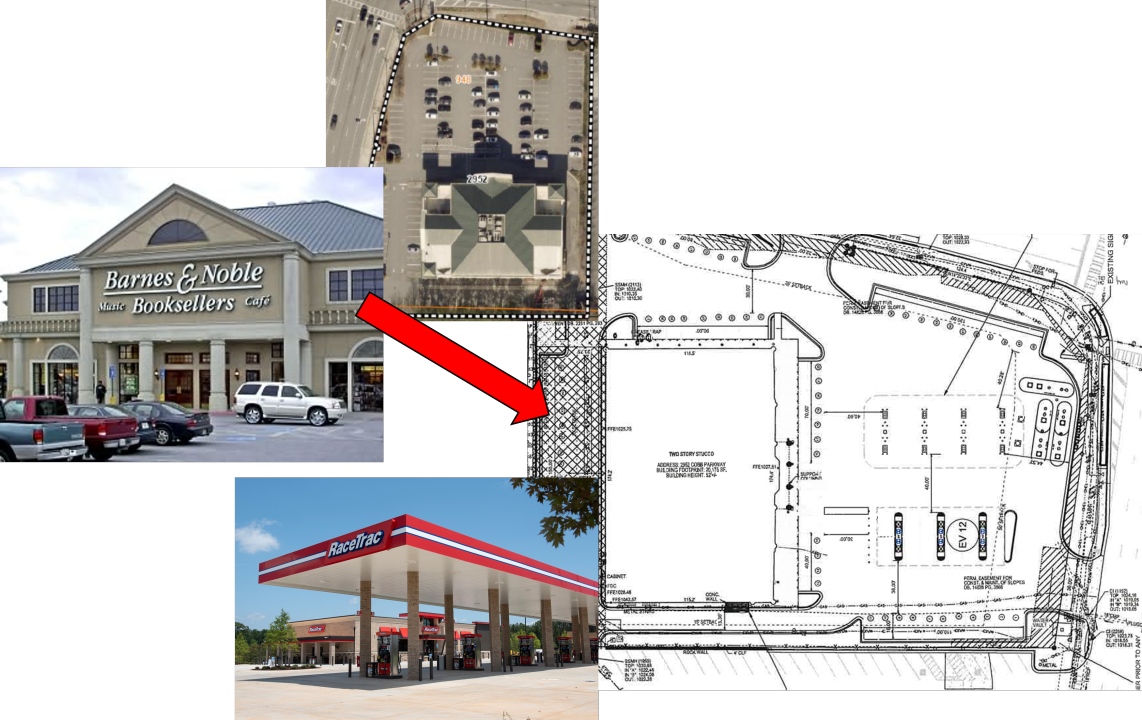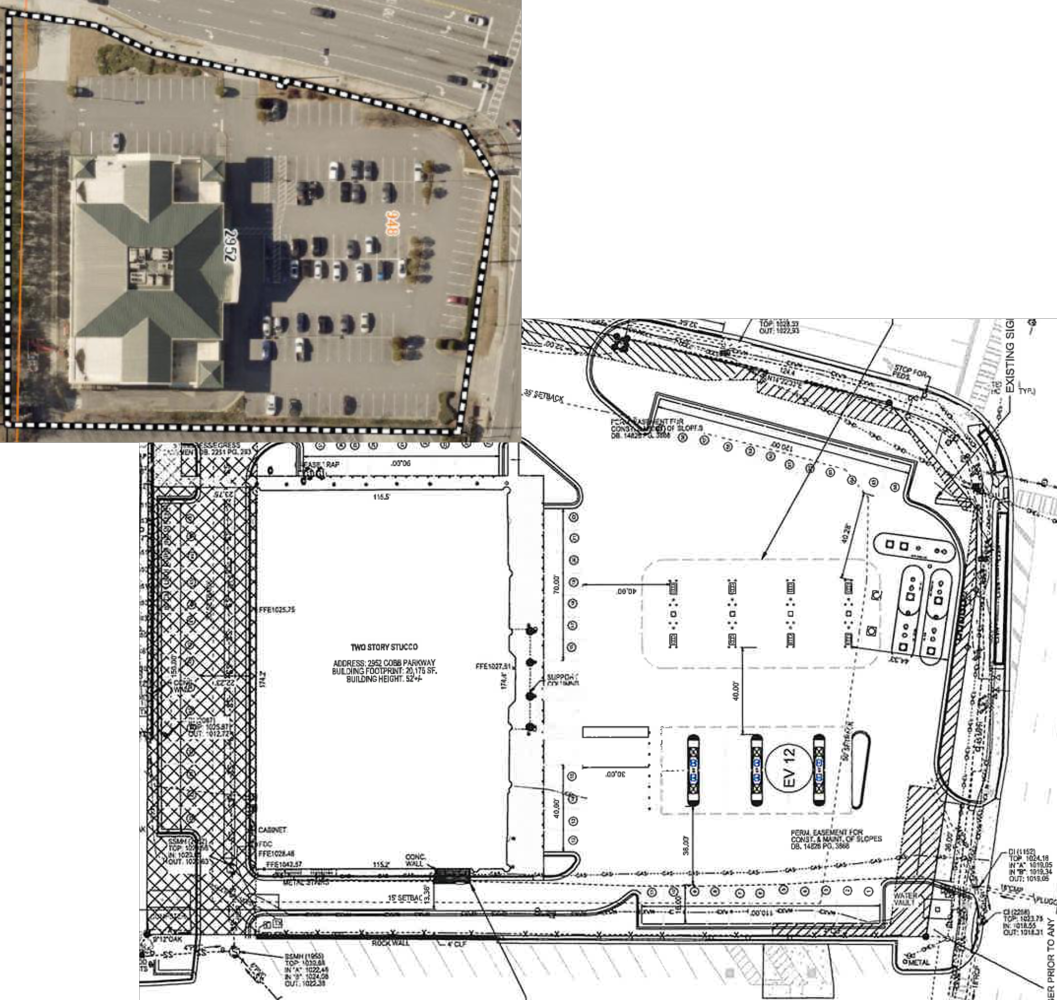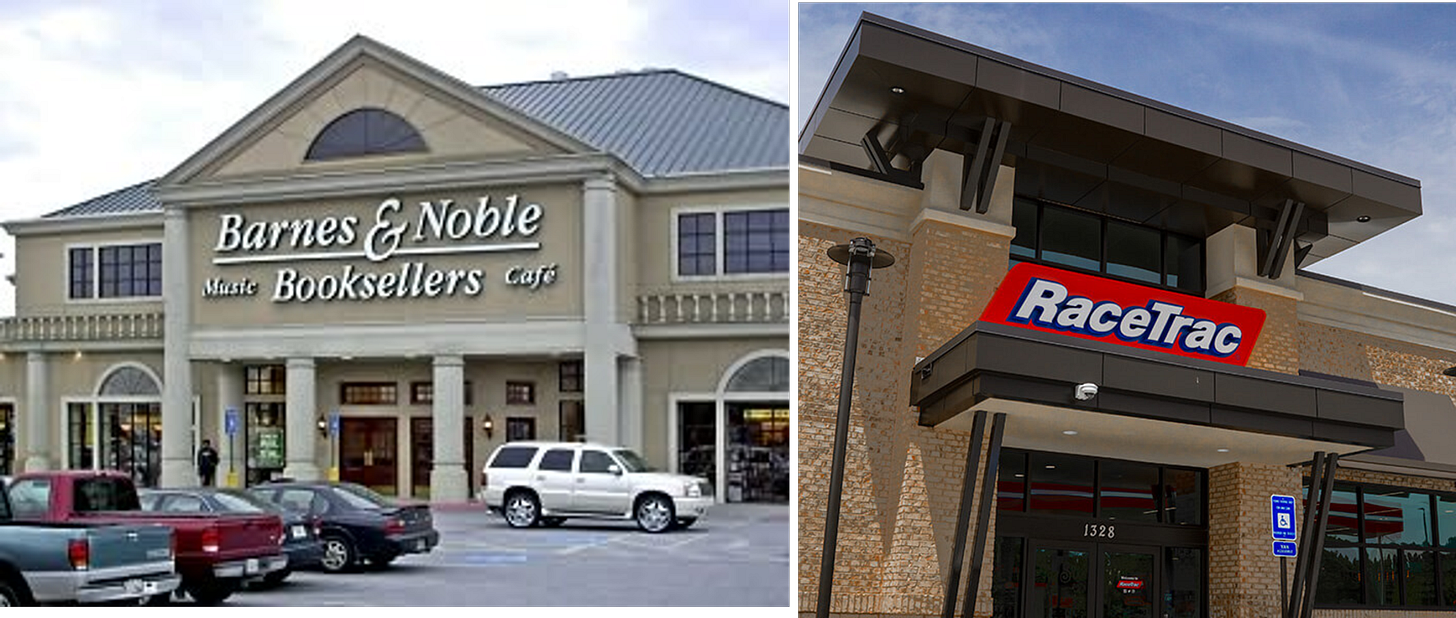Is Adaptive Reuse Key To Organic Unit Growth in the Convenience Store Industry?
Former drugstore and Big Box retail real estate may offer unique repurpose options for growing c-store chains
There are currently over 152,000 convenience stores in the United States, an increase of 1.5% from the 2023 store count.
However, many c-store operators are expanding faster — principally through acquisitions:
Earlier this week Alimentation Couche-Tard, the parent company of Circle K, issued a proposal to acquire Seven & I Holdings which owns 7-11, the largest U.S. c-store operator with ~12,500 units
Alimentation Couche-Tard also announced the acquisition of the 270 unit GetGo, c-store division of supermarket retailer Giant Eagle
In 2023 Salt Lake City-based Maverik acquired Kum & Go, doubling the number of c-stores it operates to ~800 sites across the country
Also in 2023 BP purchased the 280 sites operated by TravelCenters of America
Why are c-store operators turning to acquisitions rather than new unit development for growth?
Deals can be an efficient use of capital and resources for larger operators to quickly build scale.
And new unit development is hard, costly and time consuming — sites must be found, approvals obtained, construction financed and the new stores need to be built.
Another issue with relying solely on new unit development for growth?
Many of the best c-store locations may already be taken.
But even if the best “conventional” c-store sites are no longer available, adaptive reuse may offer operators other options for organic unit growth.
Like, for instance, the repurpose of recently vacated drugstore and Big Box real estate.
Over 1,000 drugstores have closed in the past 12 months due to the Rite Aid bankruptcy and efforts by CVS and Walgreens to trim store counts.
Hundreds of Big Box stores have also closed as a result of retailer bankruptcies.
Even though drugstore and Big Box real estate are not conventional c-store development sites, they may offer unique infill growth options in difficult-to-enter markets.
There are elements of drugstore real estate that likely appeal to c-store operators.
Many drugstores are located on high traffic, 1-2 acre parcels — generally on premier “hard corners” or signalized intersections with high traffic flow and good access.
They are typically set close to the street and feature prominent signage, a dedicated parking field and even a drive thru.
In fact some c-store chains have already pursued the repurpose of drugstore real estate.
Now & Forever, a local Houston area chain of c-stores, converted a former Houston-area Walgreens into a gas station and convenience store.
Now & Forever added a fuel canopy and 16 fuel pumps on the former Walgreens parking lot.
It also converted the ~14,000 square former Walgreens building into a Now & Forever “Plus” store as the “Plus” moniker reflects the larger size relative to its other sites.
Other c-store chains are evaluating former drugstores for the underlying dirt rather than to repurpose the existing buildings.
Last month city officials in Wilmington, North Carolina approved a rezoning and site plan to convert a vacant former drugstore site into a Circle K c-store.
Circle K does not plan to reuse the 11,000 square foot former drugstore building.
Instead, it will spend ~$5.8 MM to construct a ~5,200 square foot store, 14 fuel pumps and green space with bicycle parking and public benches on the ~1 acre site.
C-store chains are also taking a creative look at certain Big Box retail sites for reuse and redevelopment.
For instance the RaceTrac chain is pursuing an adaptive reuse of a former Barnes & Noble bookstore in Cumberland, Georgia as a gas station and c-store.
RaceTrac intends to add 16 fueling stations and 12 EV charging spots at the former Barnes & Noble site which is located at the southeast corner of the highly trafficked intersection of Cobb Parkway and Akers Mill Road.
But RaceTrac is not just adding fuel pumps at the site.
It also plans to renovate the ~20,000 square foot, two story former Barnes & Noble building into not only a c-store but also a full service restaurant, corporate offices and meeting spaces.
RaceTrac is touting the site as a "showcase" store for it to try out new services, meet with vendors and utilize for training purposes.
Which makes sense as the site is just a mile from the chain's corporate headquarters in the Cumberland Community Improvement District of Cobb County, Georgia.
Of course the former Big Box retail site required a rezoning (and thus the support of the Cobb County Planning Commission and Board of Commissioners).
But the rezoning was approved — perhaps because the RaceTrac proposal featured an adaptive reuse of the building.







